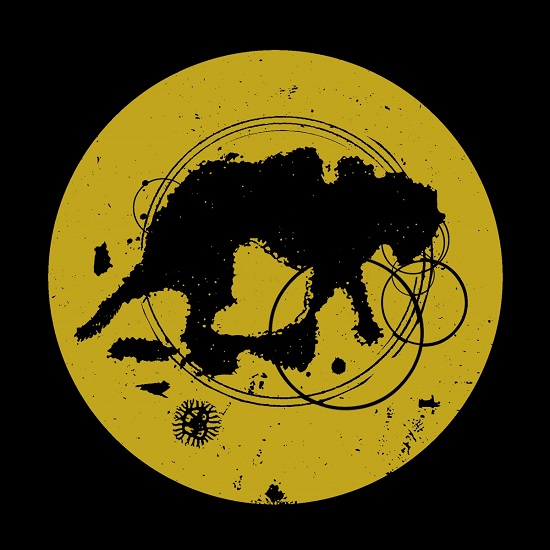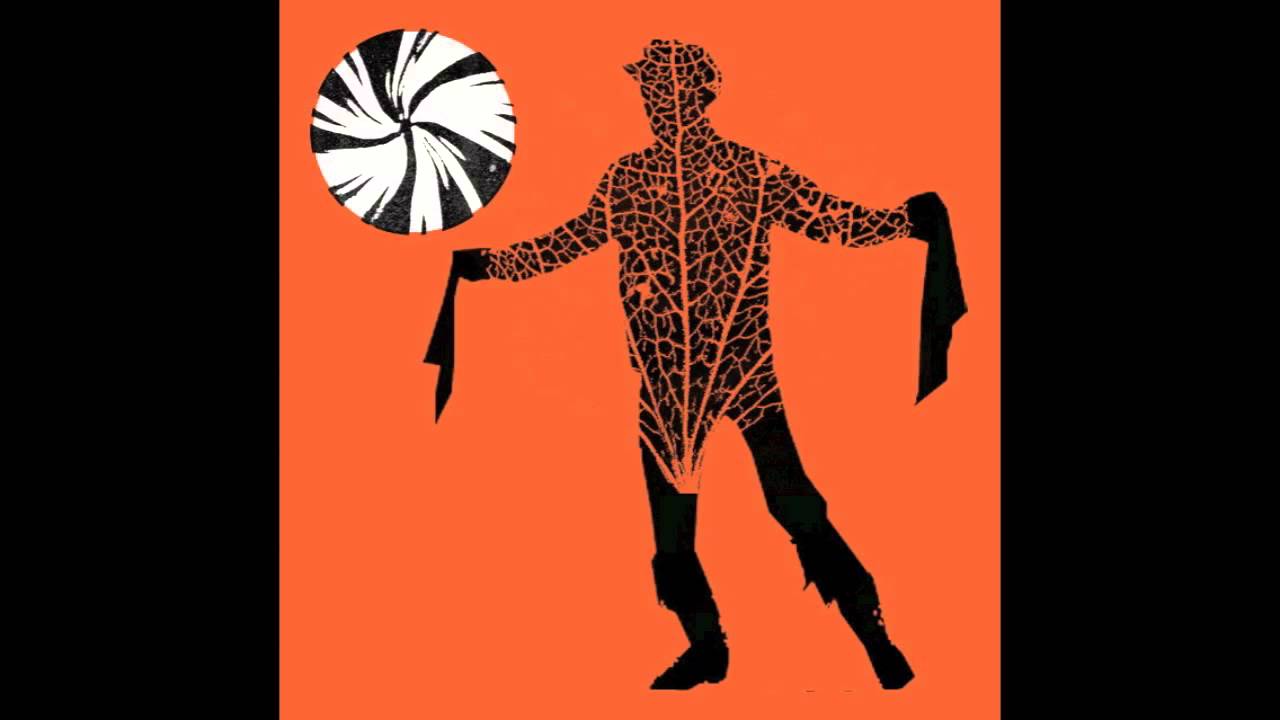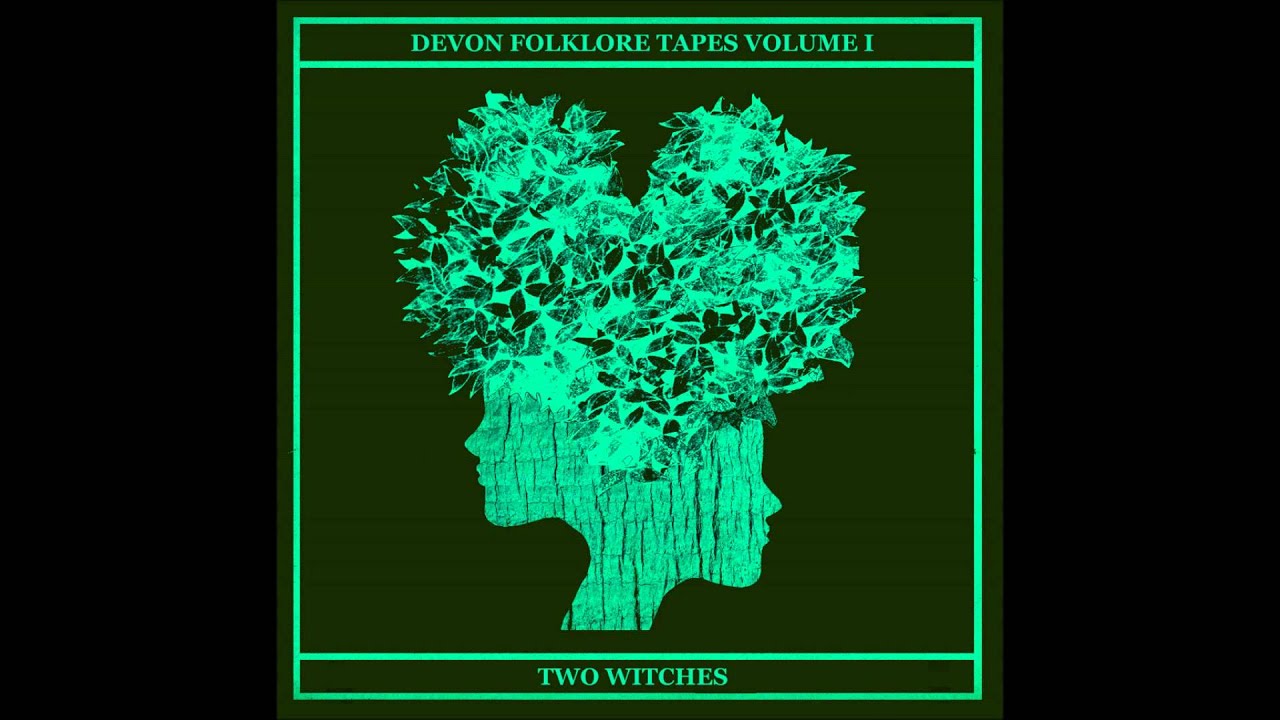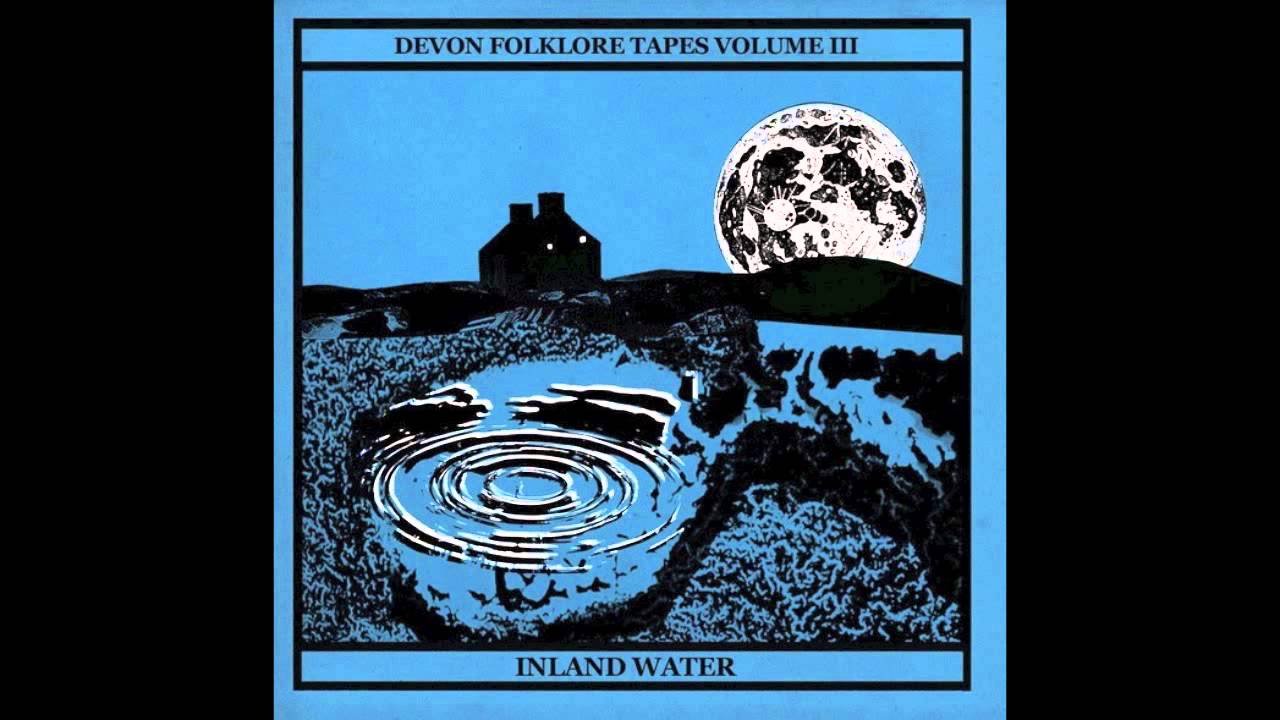Folklore Tapes, founded in 2011, is not so much a label as a research project, one dedicated to excavating the forgotten rites and customs of the United Kingdom in musical form, and these two releases encapsulate that perfectly. Rituals And Practices is a reissue on vinyl of the fourth cassette volume by the label concerned with the county of Devon, where Folklore Tapes founders Ian Humberstone and David Chatton Barker have periodically been located over the past few years, mining the traditions of this remote and ancient parcel of England for its legends and mythology. Previous volumes have focused on witches, graves and murky waters, but Rituals And Practices is the first to deal overtly with the occult as a practice rather than as a narrative theme for musical endeavours. How fitting therefore that this reissue should land the same year as Humberstone’s own adventures into the very mysterious and phantasmagorical world of English Black Dog ghost sightings.
If this all sounds rather peculiar, well, in a way it is, because the traditions examined on both releases go back centuries, and are in some cases unverified either as tales or practices. But Folklore Tapes approach them in a secular, even studious, manner; these are not the outpourings of deluded neo-pagans trying to recreate imagined lore, but rather modern antiquarians excavating the past to bring dead memories back into the collective consciousness. Having said that, both releases have an unerring ability to tingle the spine and raise the spectres of something more profound than mere music.
The first disc of the two ten-inch set that is Rituals And Practices is given over to Magpahi, aka Alison Cooper, who takes the opportunity to consider specific customs as reported by noted and controversial 20th century Devon folklorist Theo Brown (who is the subject of another major Folklore Tapes release, sadly now unavailable, and inspired most of the releases described below, in one way or another). These range from the seemingly anodyne (making doilies) to the macabre (the public salting down of a corpse in a Devon pub). Cooper makes good use of a range of instruments, from guitar to organ via piano and flute to create stripped-down, folky vignettes of these strange habits, notably using her voice to abstractly hint at higher powers, as if she is immersed in a primeval choir that has somehow been beamed into the 21st century. There are hints of the great folk revival of the sixties and seventies, and its underground counterpart of the eighties and nineties, in her compositions, with Comus – not to mention Current 93 – a clear influence on tracks like ‘Corpse’ and ‘The Sow Of Merripit’.
Paper Dollhouse, the alias of Astrid Steehouder, meanwhile, goes down a more esoteric route on her set, which was recorded outdoors in a rural location somewhere in Devon. Part of the disc is taken over by a haunting conversation between two women, one of whom increasingly appears to be dead. But which one? With rain tipping down around them, the two women discuss their lives in oblique sentences, and the feeling for the listener is of stumbling onto a seance. At night. Alone. The musical tracks that intersperse this phantomatic dialogue are no less unsettling, as they feature glistening, ethereal synths, disembodied inchoate voices and woozy electronic piano melodies, like a female-fronted Coil duetting with The Advisory Circle on All Hallow’s Eve.
Spoken word pieces form the bedrock of Ian Humberstone’s Black Dog Traditions Of England, as well, although this time they are the voices of people versed in the strange stories of ghostly apparitions by phantom hounds. The album is an amazing product in its own right, including a book, DVD and poster in addition to the vinyl record. Humberstone has done an impressive amount of research into the various black dog myths that pepper England, from Devon to Yorkshire, via London, Norfolk and Herefordshire. It’s an album to immerse oneself in, as the owner of the Black Dog Inn in Uplyme, Devon, relates the stories around the pub and its ghosts, or some scholar tells the tale of the terrifying Black Shuck of Norfolk, but it’s also a fascinating investigation of folklore, especially through the detailed booklet. Musically, Humberstone follows the style of Paper Dollhouse on Rituals and Practices, with an array of instruments and a very Ghost Box-style meshing of synths and acoustic instruments, and comes up with a triumph of the eerie and the whimsical.
If Black Dog Traditions Of England is, for now at least, a stand-alone product, Rituals And Practices is, as its title suggests, merely the latest iteration in a sequence that dates back to the label’s infancy and, one hopes, will continue well into the future. In fact, Folklore Tapes have also released more limited-edition tapes (actual tapes) centred on other regions of the UK such as Lancashire and Oxfordshire, but Devon remains, for now, the label’s spiritual home, not least because of the influence of the aforementioned Theo Brown, a woman they are doing much to reinject into public consciousness, where she belongs. I’m sure there are many regions up and down the country that could lay claim to as much or more folklore and legend than Devon, but Ian Humberstone and David Chatton Barker have uncovered a rich vein in the land of Dartmoor, and their friends who contribute to or assist them with its mining clearly find the area’s folklore invigorating.
Given the nature of the label and the way it twists ancient folklore around modern takes on musics of the past (or should that be the other way around?), I don’t feel bad to be starting this article with two of its more recent (re)releases and then heading backwards. After all, they are just the latest iterations in a continuum that is both coherent and slightly frayed at the edges. Fittingly, the first volume in the Devon Folklore Tapes series was handled by Chatton Barker and Humberstone themselves, way back at the label’s inception, and gloriously reissued as a double vinyl set two years ago. Entitled Two Witches, it saw the duo take it in turns to tell the stories of two women (Mariann Voaden and Hannah Henley) who lived in the 19th century and, whilst not exactly witches in the sense most would understand, they provided essentially pagan remedies and wards against evil that were very much frowned upon in those days. And yet Devon Folklore Tapes have pictures of them, and of their modest houses, their presences tangibly real for all the mystery of their fragile existence over 100 years ago.
Two Witches is an impeccable album, a work of deep empathy with its subjects, and one that hinges on folk-rock traditions over more esoteric soundcraft than those that follow. ‘Song For Mariann Voaden’, with its heavy drums and entrancing melody, could almost be a single as it clatters around on wings of droning strings and Ian Humberstone’s lugubrious vocals. Other tracks, such as the opener ‘Presently She Appeared With Skin Like Mahogany’, are more complex; sombre meditations on the hidden depths that lurk beneath the Devon soil using instruments like organ, bells, clarinet and violin, the complex mélange of sounds cohering into evocative sonic vignettes located somewhere between Current 93 and Steeleye Span.
If Ian Humberstone and David Chatton Barker take a sympathetic view of the two witches, and broadly use song form to esquisse their story, the second volume of the Devon Folklore Tapes, entitled Graves, embarks along a more tortuous and phantasmagorical route, in both style and content. Former Demdike Stare collaborator Anworth Kirk and the mysterious D. Orphan (accompanied by a no less enigmatic band called The White Funz) take a side each of the tape (or one 10” vinyl disk) each and explore the myths surrounding two landmark graves of Devon. The first is the lonely unmarked last resting place of Kitty Jay, a woman denied christian burial after committing suicide and forced to spend eternal rest in the wilds of Dartmoor. Anworth Kirk relates this sad tale in a poem on the first part of his side, accompanied by a mournful swirl of whistling noises, creaking field recordings and wayward synths. In comparison, his second salvo evolves like the Radiophonic Workshop soundtrack for a creepy BBC ghost story or maybe an obscure Hammer horror, alternating between mutated guitar, windswept synthesizer mulch and an almost perky horn and chimes arrangement. D. Orphan’s creaking instrumental rendition of the tale of Squire Richard Cabell, whose 17th century tomb rests in a Buckfastleigh tomb, is even more forbidding, as a grim orchestra of found sounds, field recordings and rudimentary instruments is woven into a haunting whole. Richard Cabell was, by all accounts (as ever, Graves comes with a fascinating booklet detailing the myths, legends and known realities surrounding both individuals) a wicked man, whose death, supposedly after being chased by hounds, served to inspire Arthur Conan Doyle’s most famous tale. Both these sombre accounts are given a fresh lease of grim life by Anworth Kirk and D. Orphan, and I for one am determined to visit both graves as soon as I can.
Volume III of the Devon series, Inland Water, by Sam McLoughlin and David A Jaycock shares many similarities in construction with Graves, but also harks back to the folk traditions that underscored Two Witches. Again, each artist is handed a side of the tape, or one vinyl disc, and, like Kirk and Orphan, occupy the space with lengthy pieces. Inland Water refers to the many ponds, pools and rivers that dot the Devon landscape, and McLoughlin focuses on the charmingly-named Crazywell Pool, and uses field recordings taken both by and even under the pool’s surface, capturing the local fauna and the strange ripples on the water. He then fleshes them out with a mixture of string drones, varied percussion and folky melodies to create an elaborate sonic map of Crazywell, a pond that is, of course, steeped in myth and arcane legends, including that it was once believed to be bottomless.
David A Jaycock, meanwhile, focuses on more sinister local lore, from the Devil that supposedly haunts the ancient Tarr Steps stone bridge, which dates back at least to the 14th century, to the phantom dogs (them again!) that prowl the edges of waterways near the hamlet of Dean Comb, via the blood-curdling legend of Cutty Dyer, a troll-like entity that rises out of ponds to snare unfortunate children. Jaycock, also using found sounds and field recordings as the basis for his music, takes a more sombre approach than McLoughlin, with icy synths, sudden shifts in tone, and gently plucked guitar melodies that hint at sadness, redemption and fear. In their liner notes to the vinyl edition, both artists mention discomfiting experiences when recording their segments, and these reminiscences add potency to the disquieting nature of their mixture of baroque folk and modern hauntology. In its quiet, understated way, Inland Water may be the most rewarding of the four Devon Folklore Tapes editions thus far reissued on vinyl.
All these albums are best enjoyed on vinyl, with their extensive liner notes and other paraphernalia, but those go like hotcakes, so however you can get your hands on a copy, do so (legally, of course!). Because Folklore Tapes are doing more than any others to unveil the ghostly heritage of the British Isles, and the results so far have never been nothing less than riveting. And sometimes they’re even scary, in the same way The Wicker Man is scary, because you never know what lurks below the neat lawns and concrete highways of these islands. Do you dare find out?





